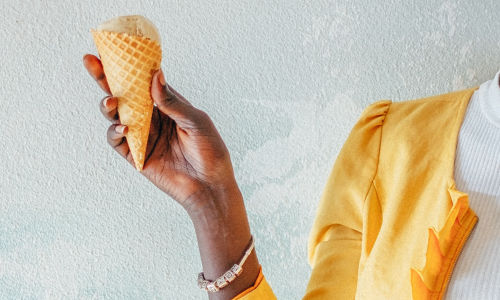Driven by the events of the past few years, the beer industry is answering the call to support equality and inclusion — and breweries stateside and across the world are getting involved. Black is Beautiful, a collaborative effort to raise awareness for the injustices people of color face on a daily basis, was created by Marcus Baskerville, Founder & Head Brewer at Weathered Souls Brewing Co. in San Antonio, Texas. The initiative seeks to unite the brewing community and its customers to demonstrate that the industry is an inclusive place for everyone, of any color.
“The Black is Beautiful initiative was a catalyst of two things: the first being that as a black business owner and a father, I wanted to give back and participate in what’s going on, and the second thing would be listening to Breonna Taylor’s mom talk about the interactions of what had happened and how she found out her daughter died,” explains Baskerville. “It really hit home listening to that conversation. At the time, it didn’t resonate with me that it would affect me so much, but that’s definitely what sparked the initiative — dealing with things that have happened lately, the murders, what’s happening around the country. I felt like I had to do something.”
The Weathered Souls team has brewed a stout-based recipe, in honor of the initiative name, which participating breweries are encouraged to put their own unique spin on. Upon release, these breweries are asked to donate 100 percent of the beer’s proceeds to local foundations that support police brutality reform and legal defenses for those who have been wronged. The breweries choose whatever local organizations they prefer that support equality and inclusion, while also committing themselves to the long-term work of equality. A logo was designed for use with the beer, and the hashtag #BlackIsBeautifulBeer is being used to spread the word across social media.
Baskerville and his team have never pursued traditional advertising and marketing initiatives. Social media and organic sharing have been the secrets to their success, and the same has been true for the Black is Beautiful initiative. Out of all of the breweries currently involved, Baskerville only contacted eight people, and out of that, it’s been people wanting to support, share, and get their local scene involved. Although he wouldn’t say he is surprised by the support, Baskerville is very excited by the response and turnout. He is also very humbled by the number of people involved. “Originally I thought there might have been 200 to 250 people that might have shown interest in this,” he reveals, “but now that it’s over 1,085 breweries, all 50 states, in 20-plus countries — that says a lot about the brewing community, the people who are in it, and how they want to support the community more so than anything else.”
Historically, the beer industry has remained largely white-centric, despite the diversified consumer base. “There are 8,000 breweries in the U.S, and less than 1 percent are black business owners. There are even fewer head brewers of black ethnicity that are involved in craft beer, so the notion that it’s very white is very true,” says Baskerville. “Now, dealing with the fact of the misconception that the craft beer industry is not inclusive and that it doesn’t allow other races or minorities to be involved — that’s where the misconception is.”
The brewing industry does have the opportunity to be very inclusive, and I’ve seen that as somebody who’s in it. It’s just about making the right adjustments — because it’s been so white-driven for so long — to start making some noticeable changes.
Within numerous consumer package goods industries, more companies are putting plans in place to diversify their staff, increase awareness, and grow opportunities for all ethnicities and races. With the Black is Beautiful beer initiative, beer itself is just a small part of the conversation. “There are people who will be brewing the beer next year. There are people who are barrel aging it to use it at a later date. There are whiskey companies that are getting involved to make whiskey for it and participate, so we’re just going to keep on going,” says Baskerville. “There’s also a virtual 5K run. Jagermeister has gotten involved, and there are some other industries outside of beer that want to show involvement. The response has been crazy, but the most important aspect of this is the long-term work that’s going to be done in communities.”
Baskerville’s hope is that those in his industry continue to make long-term, achievable goals. “You’re looking at some breweries that have already started implementing quality classes, implementing internships, and internship programs for people of color,” he notes, “so you see these opportunities arise. You see these breweries stepping up to the occasion. I’m hoping that it transcends into more and more businesses doing the same.”
But the most important thing is really what the initiative is all about: humanity. “There is a whole conversation of ‘keep politics out of beer and my politics shouldn’t be in beer,’ but this is a humanity issue,” Baskerville concludes. “This is something that should have been brought up years, upon years, upon years ago, so support the humanity issue. Be a great person; show understanding for other races and different demographics; go ahead and support the initiative; and reach out to your local breweries that aren’t involved.”
This post was last updated in February 2022






